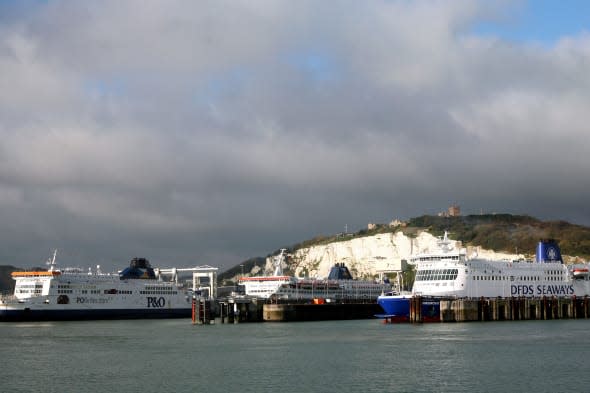Ferry passengers to pay 30% more after new EU green ruling

Holidaymakers heading for the continent by ferry next year could pay up to 30% more because of new European Commission shipping rules, a leading cruise firm has suggested.
Regulations to cut sulphur emissions from ships to 0.1% will come into effect on January 1, meaning firms will either have to switch to a greener fuel or invest in filter systems.
But the UK Chamber for Shipping has warned that the move could threaten jobs, shipping routes and even push up the price of diesel for drivers. Words: PA
And a spokesman for P&O Ferries told the Daily Mail: "Consumers will be picking up the bill for this because the shipping companies cannot bear this cost alone. Marine gas-oil is considerably more expensive than the fuel we use today, so we can predict price increases for both freight and tourist customers.
"All shipping companies will be affected but our biggest rival, the Channel Tunnel, will not be affected. Peak-time sailings might cost 30% more than people paid last year."
The new EU rules were the result of 2005 research which suggested sulphur emissions from shipping would outstrip all those from land-based sources by 2020.
The commission called for the International Maritime Organisation, a United Nations agency, to introduce stricter rules in 2008 and eventually the Sulphur Directive was published in 2012, setting a 2015 deadline.
But the UK Chamber of Shipping said up to 2,000 jobs could be lost as companies close shipping routes while they upgrade vessels and the price of diesel could soar by as much as 3p a litre due to increased demand.
Meanwhile, the filtration technology, called scrubbers, could cost up to 12 million euros (£9.5m) to install in large ships, potentially sidelining them up to 50 days.
Guy Platten, chief executive of the UK Chamber, said: "We support the move to reduce sulphur emissions and the introduction of tough new limits.
"But the sharp increase in demand for low sulphur fuel will see a massive spike in costs both for shipowners and potentially for ordinary diesel car users - so we need to use the new technology instead. But that technology is only now beginning to work, and could take up to two years to fit properly to all of our ships.
"Reducing sulphur is a job we agree needs doing, but it needs to be done in a pragmatic way that protects jobs as well as the environment. All we're asking for is the EU to understand the practical realities we face and give us the time we need to comply."
A European Commission spokesman said: "Sulphur dioxide emissions result in acid rain and fine dust that causes respiratory and cardiovascular diseases. They are a direct health hazard, in particular near major ports - like Dover.
"The savings on healthcare and the environmental benefits will far exceed the costs of implementing the agreed International Maritime Organisation measures.
"The UK itself proposed that the North Sea and Channel - as an area of high shipping density with a fragile eco-system - should be designated by the IMO as a Sulphur Emission Control Area (Seca).
"Other Secas include the Baltic and much of US and Canadian coastal waters and the same rules will come into effect on January 1 2015 there.
"The new 0.1% sulphur limit for shipping fuel in Secas is still 100 times higher than the 0.001% limit for fuels used in trucks and cars."
{C}

Related stories
Cruise holidays are the best, say British travellers
Cruises 2015: Where to find the best deals





